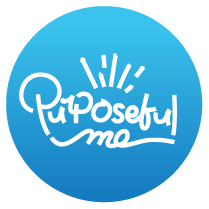
From “Blah Blah” to “What What”
Have you ever found yourself halfway through a conversation, zoning out as someone goes on with… well, blah blah blah? This universal expression of verbal shorthand can be a bit of a lifesaver when you want to skip the boring details.
Interestingly, while we’re all familiar with “blah blah” in English, it has its counterparts across the globe: in Nigeria, people might say “what what,” which serves a similar purpose of summarising (or dismissing) less relevant points without getting bogged down in them.
During a recent conversation with my older brother, he used the phrase “what what” a few times and it made me smile each time. I am sure he didn’t even realise he was saying it, but I was learning the Nigerian equivalent of the ‘Blah Blah’ phrase that I often use.

But here’s where things get interesting – and possibly awkward. Depending on where you are, when you say, “blah blah” or “what what” (or whatever local version applies), you might be hinting that what’s being said is just filler or not worth paying full attention to.
If you’re using it to refer to your own story, you’re in the clear. For instance, “Oh, I spent the weekend cleaning the house, blah blah blah…” is safe. You’re not devaluing anyone else’s contributions; you’re simply sparing your listener the unnecessary details of your weekend chores.
On the other hand, if you’re in a meeting and describe someone else’s points as “blah blah blah.” Suddenly, you’ve moved from friendly summariser to dismissive critic, and it’s a quick way to dig yourself into a hole.
Here are a few examples from different cultures, and why we need to stay mindful about how shorthand like this can be used and (mis)interpreted.
The Global Language of “Blah Blah”

Each culture has its own equivalent of “blah blah” or “what what,” and while they serve a similar function, they can land differently based on context. In Japan, people might use expressions like “nande nande” which means “what why” to convey repetitive, unnecessary explanations.
In France, you’ll hear “patati patata” as a way of skipping past unimportant details. The Turkish equivalent, “bilmem ne,” which translates to “words fail me” serves the same purpose. All over the world, people are using shorthand to fast-forward through the fluff of conversations.
In certain cultures, though, using these terms can come across as abrupt or even disrespectful. In more formal settings, where respect and attentiveness are paramount, casual shorthand can feel dismissive.
It’s one thing to be having coffee with a friend and saying, “So, I told my boss we should improve the workflow, blah blah, and they loved it!” But say that in a work presentation? You might leave people wondering whether you really value the details you’re skipping over—or worse, you might make them feel like their contributions are “blah blah” material too.
When Blah Blah Turns into Misunderstanding
A funny thing about these terms is how often they come out unintentionally. Some people say “blah blah” as a filler without even realising it, especially when they’re nervous.

Picture a job interview where you explain your previous experience by saying, “So I handled the project, blah blah, led the team, and it was a success.” To you, this might feel like a humble, modest way of summarising. To your interviewer, it might sound like you’re glossing over the details – either because you don’t care, or worse, because you’re making them up!
In cross-cultural communication, these shortcuts can be a trap. Imagine a Nigerian in the U.S. or UK, using “what what” with a local colleague who has no clue it’s just a stand-in for the rest of the story.
They might think, “What’s ‘what what’? Are they trying to be vague? Do they not want to tell me everything?” Trivial things like these can create unintentional friction in what would otherwise be simple exchanges.
The Art of Purposeful Communication
So, how do we navigate this language minefield? It starts with a little cultural and contextual awareness. Understand where you are and who you’re talking to.
Before jumping to “blah blah,” ask yourself: Is this the right setting for a shortcut? Am I respecting the other person’s input? If you’re among friends, that’s one thing. But in more formal or professional settings, it’s worth it to add just a bit more context, rather than risk seeming dismissive.

Cultivate Cultural Sensitivity
Here’s a challenge: Next time you find yourself tempted to say, “blah blah” or “what what,” take a moment to think. Are you using it for your own story, or is it about someone else’s? Could it come across as dismissive? Adjusting our language even slightly shows that we’re aware of the subtleties in communication and that we respect the contributions of others.
While “blah blah” may save us from giving the play-by-play of a dull story, purposeful communication can save us from misunderstandings, especially in a world where every culture has its own way of saying, “boy meets girl, boy losses girl, yada yada yada.”
Finally, be aware of how much you use these filler phrases in informal conversations as the more you use them, the more likely they are to roll off your tongue in formal settings.
And who knows? Perhaps the next time you talk, your awareness of these little quirks will lead to a deeper connection with those around you—without any “what what” required.
Thanks for reading and sharing my post. Please drop a comment and any other phrases that you use.
Here is to “fluff free” conversations because life is too short for too much fluff.
Sorry, the comment form is closed at this time.


Wasim Ismail
We all need to be more mindful of how expressions & use of language might be perceived, especially in professional settings. Adapting a “fluff-free” conversations leads to deeper connections and meaningful exchanges! Thank you for sharing this insightful post.
Olusegun BAYODE
This article is well-crafted Yemyem. As rightly pointed out, there are many reasons people use such words – if the information you are passing across is sensitive and you don’t want to divulge the details or when you want to skip some irrelevant issues. It’s also a way to nip further conversation on a particular matter in the bud.